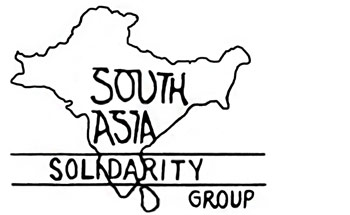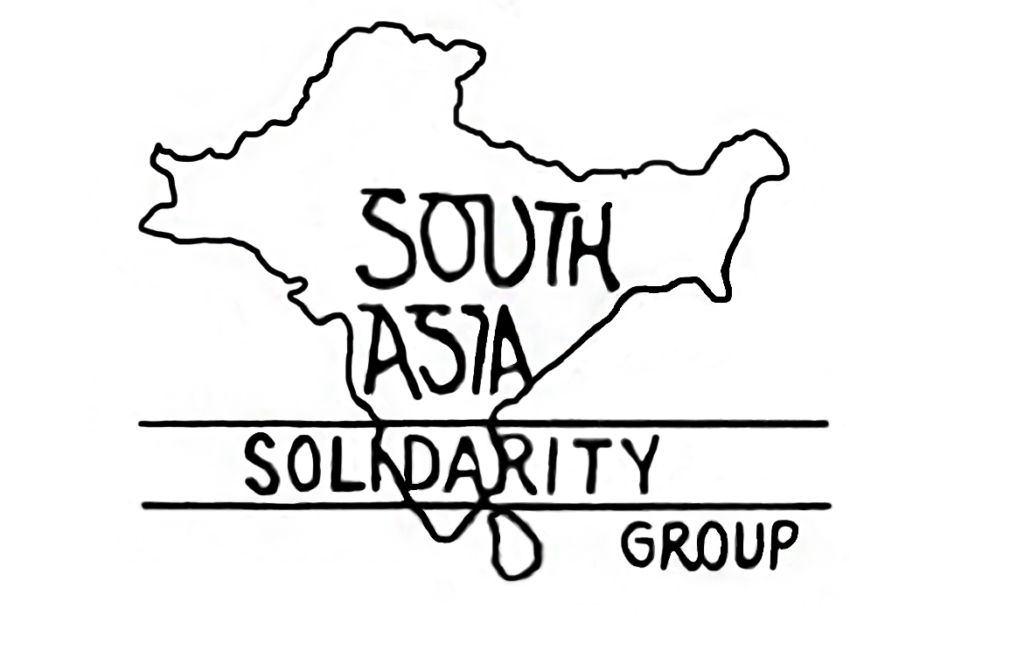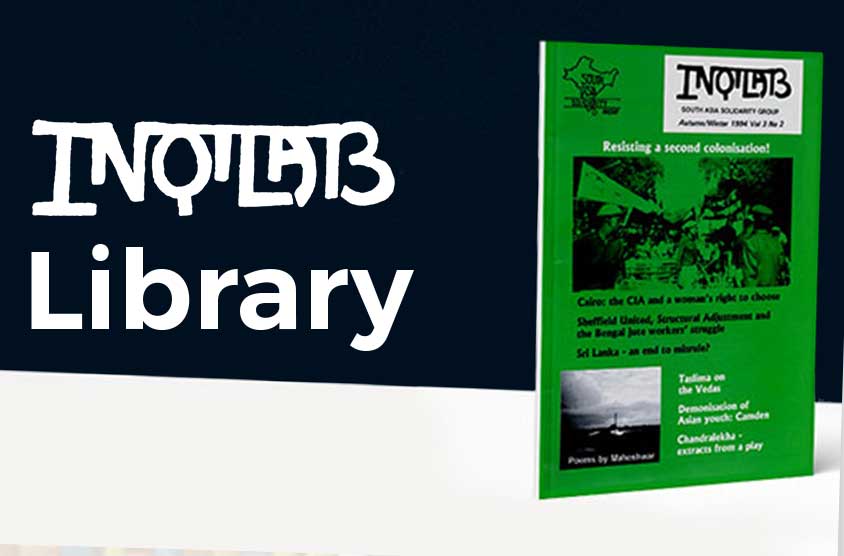Bradford 12: lessons for organising by IRR News Team
- August 4, 2011
- Posted by: admin
- Category: News
An event in London marking the Bradford 12 thirtieth anniversary was a celebration and an education for resistance.
|
|
Thirty years ago, on 10 July 1981, twelve young Asians were arrested and charged with conspiracy to cause explosions and to endanger life, after a crate of home-made milk-bottle petrol bombs was found. (In fact thirteen were arrested, but the thirteenth, the only woman, Shanaaz Ali, was released without charge.) A defence campaign was formed; thousands marched in Bradford and Leeds under the slogan ‘Whose conspiracy? Police conspiracy!’ and hundreds attended the trial each day. But the defence to the charges, not disclosed in advance of the trial so as to surprise the prosecution, was community self-defence. Yes, we made these petrol bombs, the young men said. We were forced to, to defend our communities from the threat of an invasion by the far-right National Front, against which we knew from previous experience there would be no police protection. The twelve and their legal team set out to educate the jury about the realities of racist violence for them, their families and for black people in Britain. The jury responded by acquitting them.
The events organised in Bradford and London on 16 and 23 July respectively, by some of the Bradford 12 with the South Asia Solidarity Group, Newham Monitoring Project and CAMPACC, celebrated the victory, but went further, asking what are the lessons for today’s generation, for divided and ravaged communities in a globalised world.
Speakers from the twelve, Shanaaz Ali, the men’s solicitors Ruth Bundey and Gareth Peirce, anti-racist organiser Dave Harrison and writer and campaigner Amrit Wilson spoke in the morning session at the London event, ‘Legacies and lessions’, at SOAS’ Khalili theatre. To an audience of veterans and neophytes, grandparents and young people, they sketched a history of popular, street and police racism, of anti-racist campaigning and community organising at a time when, as Amrit Wilson reminded us, ‘Black’ was a political colour and when multiculturalism came from below, rather than through state policies designed to pit communities against each other in competition for funding. Tariq Mehmood reflected on the importance to the United Black Youth League in 1981 of not seeking public funding, a policy fostering self-reliance and independence which needed to be re-learned by groups addressing today’s challenges, whether of youth criminalisation, deaths in custody, anti-terror policies or Islamophobia. Gareth Peirce observed that for the state, the lessons of the Bradford 12’s victory were clear: if juries could not be relied on to convict, abolish them – by finding administrative alternatives to trial such as control orders; and if acquittals were based on evidence, abolish it – by instituting processes of secret evidence so that those dubbed ‘terrorist’ were not told why, leaving them unable to fight the label and the punitive measures which followed.
In the first afternoon session ‘Resisting the British state’, a wide range of speakers outlined contemporary challenges and campaigns. Mary Pearson of the Troops Out Movement referred to the 5,000 British troops still stationed in northern Ireland. Marcia Rigg spoke of her brother’s death in custody and the mutually supporting and strengthening role of the United Families and Friends Campaign, which is holding its annual march later in the year. Frances Webber of the IRR (who was a Mackenzie friend[1] for one of the Twelve, Tariq Mehmood, during the trial), spoke of the similarities and differences between then and now – from the NF to the EDL; from immigration policies separating families to globalised policies treating people as commodities; from popular and police racism to monoculturalism, thought and speech crimes, and new geographies of racism. Dan Glass of Plane Stupid/So We Stand described the two and a half-year campaign starting with the arrest of 113 climate change activists in a Nottingham hall in 2009, in which he put to good use lessons in campaigning learned from the Bradford 12. (Of the twenty-six charged, the trial of six was abandoned when Mark Kennedy’s role as a police agent provocateur was exposed, and twenty activists’ convictions were quashed by the Court of Appeal a week ago.) Dan’s talk illuminated the links between environmental campaigns and anti-racism which the emerging activist group So We Stand is committed to strengthening. Deniz Arbet of the Kurdish Community Centre (KCC) spoke of the struggles of Kurds for recognition and against criminalisation through the anti-terror laws. And Hamja Ahsan gave a moving speech about his brother Talha’s five-year imprisonment for extradition to the US on conspiracy charges (for which no evidence is needed), and read some of Talha’s beautiful poems, written in prison.
The last session of the day, ‘Imperialism then and now’, looked beyond our borders. Samarendra Das, from South Asia Solidarity, reported on the role of the Department for International Development (DfID) and of large NGOs in supporting mining corporation Vedanta, whose bauxite mining in India had, he said, led to thousands of deaths of mainly indigenous people through forced displacement, accidents and police operations and famine in a devastated environment. He spoke of the popular struggles which have been supported by international solidarity. Jawad Sabah of Iraqi Democrats Against Occupation (IDAO) recounted and then demolished the myths behind western intervention in the ‘Arab spring’, and Leila Khaled of the Palestine National Council sent solidarity greetings to round off a stimulating and rewarding day, full of reflections and new connections – the sort of day that sends participants out recharged for resistance.
[1] Someone who assists an unrepresented defendant or claimant in court (named after the case which established the principle that everyone is entitled to have assistance in court, whether qualified or not). The Institute of Race Relations is precluded from expressing a corporate view: any opinions expressed are therefore those of the authors.


